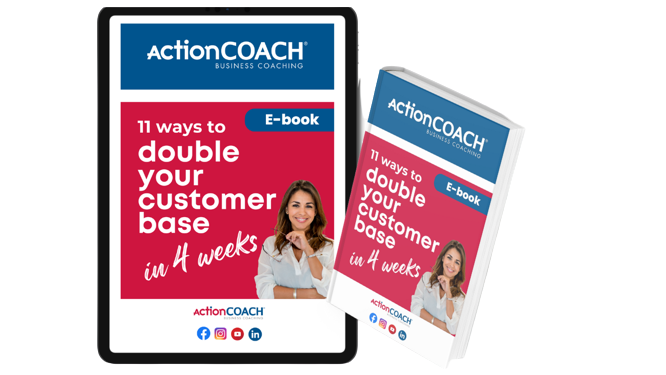Proper planning is paramount when it comes to finances, and it’s never too early to start doing so. Otherwise, you risk making costly errors. The EOFY (end of the financial year) is just around the corner. But it's never too soon to avoid the crunch that comes a few weeks prior to 1 July.
Use the table of contents to quickly jump between sections.
Sure, there’s going to be some pressure even if you start preparing in time. But preparing early means you wouldn’t have to rush to cover all your legal and financial obligations later. To help you avoid the rush, as well as potentially costly mistakes, check out the preparation tips below that should help you tie up all the loose ends and get ready for the EOFY.
5 EOFY Preparation Tips to Follow
Tip #1 - Review Your Statements from the Previous Year
When reviewing statements from the previous year, you’ll want to pay close attention to the following:
- Items that took away a large chunk of your income
- Amount spent on interest and fees
- Recurring subscriptions
Furthermore, you should inspect your expenses and income for this year. Then, account for your budget and do a variance analysis. It should help you understand if you’re within the budget.
Of course, if the numbers don’t match projections, you should find the reasons why. There are other benefits to reviewing your statement. The act may help you find new ways to achieve savings for the following year. Plus, it could show you where it would be possible to negotiate prices or find better deals.
For example, buying regularly used items in bulk is usually cheaper. And you may find it worthwhile to approach utility providers and suppliers to work out a lower rate.
Tip #2 - Cash Flow Management
It’s safe to assume that you want your business to thrive and grow the next year. If so, it’s important to find clever ways to manage your cash flow and create realistic projections.
You must assess the previous year’s cash flow requirements first before proceeding to make your projections. It’s important to follow this order as it makes the projections more accurate and realistic.
Also, your sales department should provide rough estimates for the next year. This mostly applies to inbound cash flow, assuming you haven’t changed the market or operations. If you manage to negotiate deals with your vendors and suppliers, calculate that into the projection as well.
And don’t forget to factor in shortages and other unexpected situations. Your cash flow projection should leave enough room for anything out of the ordinary. Check out our blog post about 10 costly cash flow mistakes to avoid here.
Tip #3 - Look into Deductions And Concessions
To keep your business running smoothly, you should know which deductions to claim. You’re likely to file for an instant asset write-off, for example, which is popular with SME owners. If so, you should know that the Australian government raised the threshold to $150,000 for assets purchased in the previous financial year. But there are certain criteria you need to meet.
Eligible assets should have been in use by the end of 2020. And assets worth $30,000-$150,000 only become eligible if installed and used between 12 March and 31 December of the same year.
Also, some prepaid business expenses are eligible, including:
- Electricity
- Wages
- Professional subscriptions
- Utility bills
- Insurance
To find the full list of eligible prepaid expenses, you can go to ATO’s official website and look up “prepaid expenses deductions”.
Finally, those in agribusiness may consider farm management deposits. With these, income tax becomes easier to manage when you have a good production year. In particular, you’ll be paying tax only on the funds drawn from the deposit. Rather than going to a local branch, managing and renewing the deposit is available online. Read this helpful checklist for small business owners to make sure they are prepared to confidently take on the new financial year.
Tip #4 - Make Sure You Have the Necessary Documentation
Without the necessary documentation, your EOFY process may turn into a nightmare. So here are some of the documents you’re going to need:
- Superannuation contributions (for the employees)
- Purchase and sales receipts
- Tax returns
- Activity statements
- BASs (Business Activity Statements)
- GST returns
These are the most common documents for SME owners. Depending on the tax deductions claimed, you may also need paperwork for the following:
- Lump-sum payments like termination fees
- PAYG (Pay as You Go) from employees
- Distributions received (partnerships or trusts)
Some businesses may also need a capital gains statement if any capital gain event took place. And if you received foreign income, you have to submit documents for those as well.
As for local income, the paperwork may include:
- Bank statements with interest earned
- Dividend statements
- Share trading contract notes, as applicable
These are just examples of the documents needed. The full list may depend on the size, scope, and niche of your business.
Tip #5 - Meet Your Super Requirements
If your business has SG (superannuation guarantee) obligations, then you’ll be paying 9.5% employee contributions, which you should take care of as early as possible. If paid by 30 June, businesses can claim tax deductions for 2022. Those that pay after that date would have to wait till the next year to claim deductions.
Preparing for Success
Aside from the above, you may consider streamlining your workflow to make preparations even more efficient. It’d also be helpful to set deadlines for the important tasks so you don’t forget. Use templates for the repetitive tasks and documents that you need to get ready. Invoice templates can be quite handy, for example. There are also apps and services that can make the process faster and easier to manage.
The next steps
Found this blog helpful? We recommend you to book a free strategy session with us. Contact us today!

